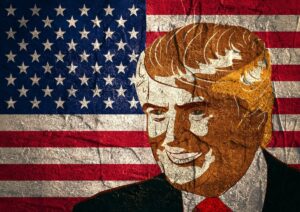
The swearing in of Donald Trump as the 45th President of the United States on January 20, 2017 was an event few ever expected to happen. Now that the reality television star-turned-world leader has taken his seat in the Oval Office, what will his presidency mean for the rest of the world?
It is difficult to say. The new President’s rhetoric on the campaign trail was notoriously inflammatory and often self-contradictory. Yet, if recent comments are anything to go by, he may not be the pick-me-up for Indian drugmakers that was previously anticipated.
Trump won an unexpected victory in the November 8, 2016 presidential election. After this, a number of Indian pharmaceutical experts expressed optimism that a Trump presidency could benefit Indian pharma. It even led to some pharmaceutical companies seeing their stocks rise. However, is this still case?
Some reports suggest no. Trump has long emphasised a desire to make U.S. manufacturing more competitive. In his first press conference since winning the election, Trump turned his eye to the pharmaceutical industry. He said, “[the U.S. is] the largest buyer of drugs in the world and yet we don’t bid properly.”
The Economic Times quoted Trump as saying that the drugs industry is “leaving left and right. They supply our drugs but they don’t make them here to a large extent…they’re getting away with murder.”
In the wake of the then-President elect’s remarks, the Bombay Stock Exchange’s healthcare index closed at 0.73% down. Livemint reported that a number of pharmaceutical companies – including Lupin, Dr. Reddy’s Laboratories and Sun Pharma – had seen their stocks fall.
The U.S. is a major market for Indian drug manufacturers. As Livemint previously reported, “Indian companies and their profitability in particular is linked to how they perform in this market, which contributes to almost half their revenue.” In 2014-15, India exported $3.8 million in drugs to the U.S., which accounted for a third of total exports. Should Trump adopt a hard-line protectionist stance, it has the potential to damage a significant portion of Indian drugmakers’ revenue.
However, some sector experts have said Trump will not have a substantive impact on Indian pharma. The Business Standard noted that after pharma stocks dipped, they “recouped their losses.” They added “sector experts blamed the drop in price to an overreaction.”
Biocon chair Kiran Mazumdar-Shaw was quoted as saying “the Indian pharma industry is likely to be least affected by the anticipated policy changes.” Shaw pointed out that “Indian pharma industry has contributed significantly to contain and bring down healthcare costs in the U.S. by supplying high-quality yet affordable generic drugs to the country for a decade…India-made generics sometimes cost almost one-tenth of branded drugs in the U.S.” Indian Pharmaceutical Alliance Secretary General D.G. Shah was more terse, stating “we are not unduly concerned.”
Trump’s unpredictability engenders a great deal of uncertainty. Losses of confidence in India’s pharmaceutical sector – even if momentary overreactions as described above – could pose significant challenges to the industry’s financial growth. Consequently, many of those dependent on India’s low-cost exports of generic drugs – both at home and abroad – could be left exposed.

